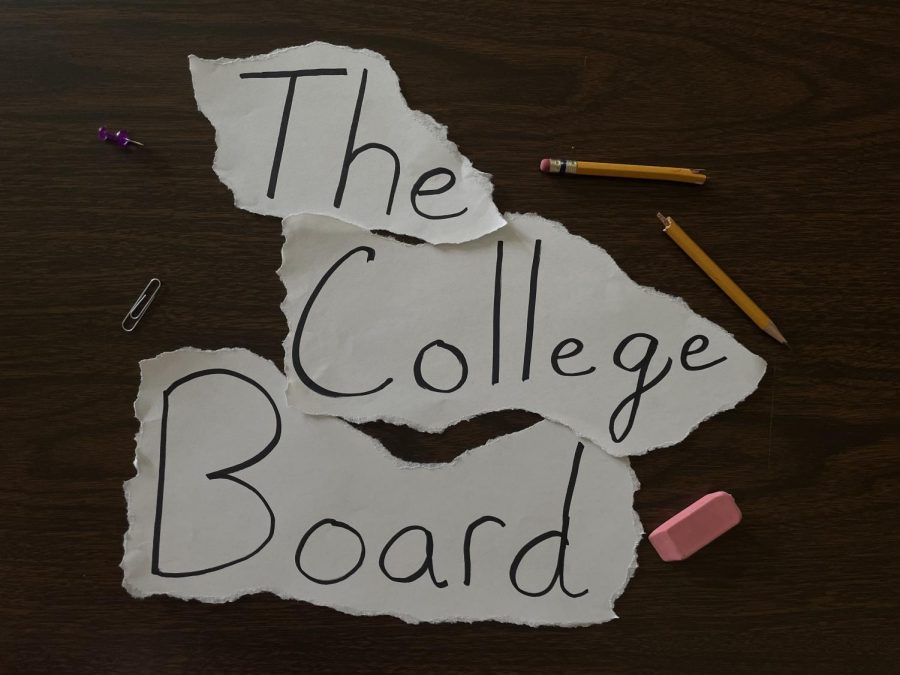The College Board: Useful or Useless?
Students and Educators share their opinions and experiences with the looming figure in high school life that is The College Board.
In 2010, the cost of taking the SAT with an essay was $47, this year, that same test will set students back $68. “I think College Board has to go back to the roots of why they exist and who they’re actually here to help,” said Presque Isle High School history teacher Zachary Powers.
May 12, 2021
The Maine Department of Education decided earlier this year to shift away from the mandatory administration of SAT for high school juniors in favor of the NWEA, a standardized test that is taken by Maine students in the state throughout their educational careers. This has left many educators and students questioning the usefulness of The College Board: a nonprofit organization which oversees the SAT as well as the curriculum of AP classes with the purpose of promoting college readiness—except, do they?
In the past decade, the corporation has been slammed by numerous scandals surrounding the legitimacy of their nonprofit status. More recently, when the world shut down last spring, they became a national symbol of mockery online as students and teachers expressed outrage of their poor handling of the AP Exams, which were forced to shift to a virtual model due to the outbreak of COVID-19 in the US.
“I despise The College Board,” said senior Ethan Wydysh. “Their exams are all predicated on you studying for the exam itself and not very well based on the course material.
Wydysh, who has taken multiple AP tests as well as the SAT in the past year, expressed similar concerns regarding the company’s financials. “It’s a lucrative and corrupt business,” he said. “The exams are a lot of effort and stress, and they aren’t even a guaranteed credit in the end [even though] you pay for them.”
“They are listed as a non-profit,” he continued. “But annually I believe their CEO makes over a million dollars so I would not define them as not for profit. They are out to make a good profit.”
His sentiments were backed by longtime Presque Isle High School history teacher Zachary Powers, who has seen his fair share of The College Board over the past two decades. “I personally think that the College Board has become an organization more concerned with maximizing their ability to make dollars rather than providing good educational services for kids,” he said.
“How they handled the AP Exams (last year) is a perfect example of them just wanting to constantly figure out a way to still get your money,” Powers continued. “The back and forth on that in terms of how they were going to set up the test changed several times just between when we shut down in March and the actual test day. There wasn’t very good communication for the kids in terms of how the tests were going to be handled, how they were going to be scored, if they could get their money back.”
Amidst all the negatives, some still grant the organization concessions for the more positive aspects of their work. “I find that the College Board’s thought process behind what they’re trying to do is excellent,” said Guidance Department Director Andrea Hallett. “They’re trying to give every student an equal opportunity to take the same tests.”
Much like the others however, Hallett sees their faults on a much more regular basis. “I find, as an organization, that it’s very difficult for counselors to work with them,” she said. “Usually when you call, you’re put on hold for a long period of time. Nothing is ever simple. If there’s an issue you have to go through four or five different people to get it rectified. It just seems like it’s very disorganized from the backend, and as far as counseling is concerned it’s very frustrating.”
In regard to the tests themselves, the phase out of the SAT as a required exam came as a welcome change to Hallett, who says that the merits of the NWEA exam outweigh that of its predecessor. “The way that the NWEA is set up to work is through scaffolding questions, so if you get one right you go to the next level and if you get one wrong you go back, so I think it’s a truer gauge of a student’s actual ability compared to a flat test across the board, which is what the SAT is.”
“They [the College Board] started in a good space,” she continued. “It was the college entrance exam that everyone was using, and now it’s become a situation where there are other tools and they’re trying to compete with the other tools instead of working with what they’ve already got. It’s become very expensive, especially for students in Aroostook County, if you take it ]the SAT] four or five times at $60 to $70 a pop and then to send your scores it’s another $15 for each school, so it gets really pricey for families that can’t afford that.”
Despite all the cons, Hallett says that it’s unlikely that the corporation fades from use anytime soon at the high school level. “I think that as colleges are still using them, it is useful,” she said. “But more and more colleges are realizing that it’s not as representative as it used to be because it has become elite, and lower income families can’t afford to take it, and that speaks volumes. So I think it does have a niche right now, but as we go on, people are going to realize their flaws and create programs that are more representative for students.”

